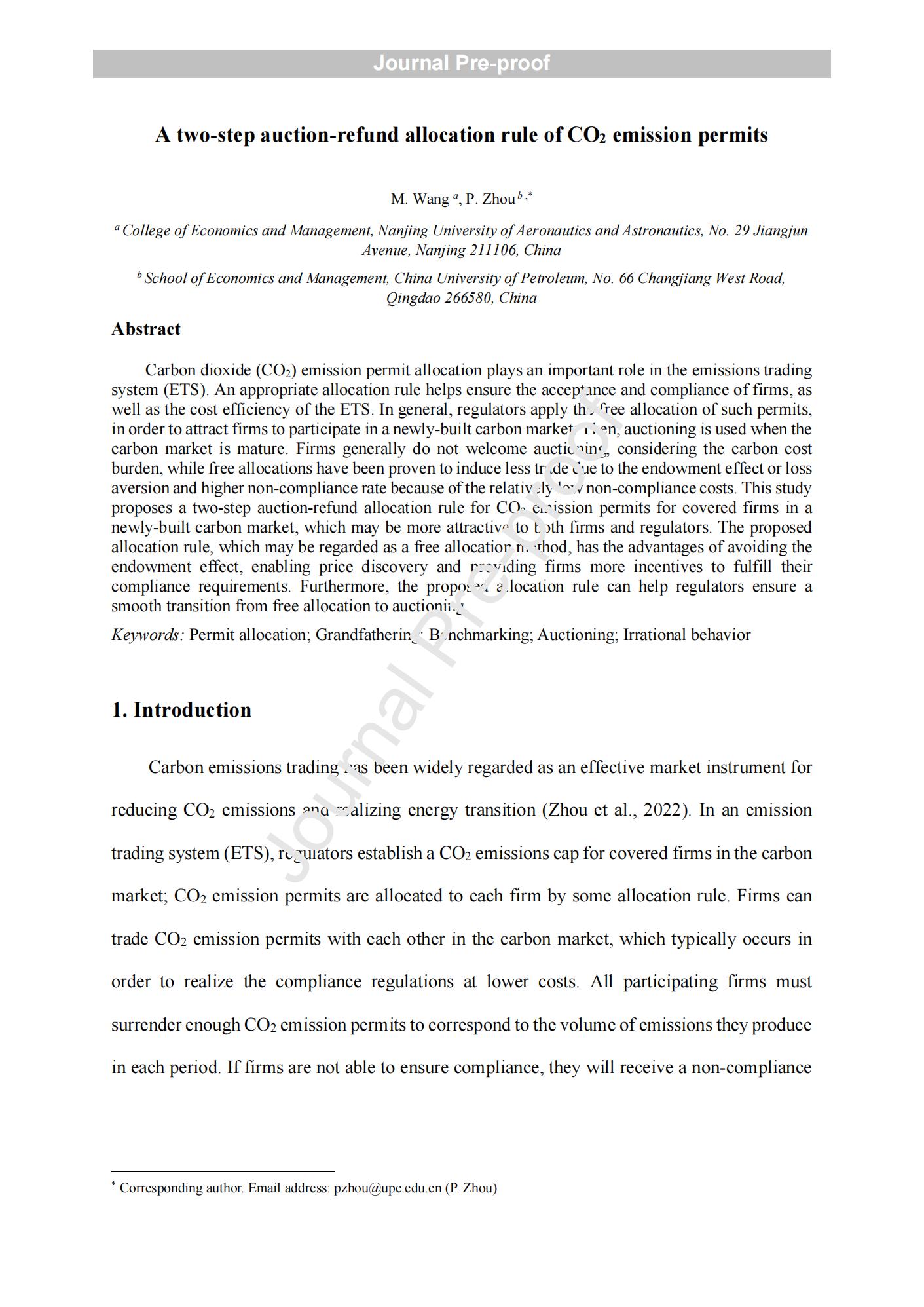Carbon dioxide (CO2) emission permit allocation plays an important role in the emissions trading system (ETS). An appropriate allocation rule helps ensure the acceptance and compliance of firms, as well as the cost efficiency of the ETS. In general, regulators apply the free allocation of such permits, in order to attract firms to participate in a newly-built carbon market. Then, auctioning is used when the carbon market is mature. Firms generally do not welcome auctioning, considering the carbon cost burden, while free allocations have been proven to induce less trade due to the endowment effect or loss aversion and higher non-compliance rate because of the relatively low non-compliance costs. This study proposes a two-step auction-refund allocation rule for CO2 emission permits for covered firms in a newly-built carbon market, which may be more attractive to both firms and regulators. The proposed allocation rule, which may be regarded as a free allocation method, has the advantages of avoiding the endowment effect, enabling price discovery and providing firms more incentives to fulfil their compliance requirements. Furthermore, the proposed allocation rule can help regulators ensure a smooth transition from free allocation to auctioning.
主要创新点
1. Firms' less trade and non-compliance behavior lead to loss of carbon market efficiency.
2. A two-step auction-refund allocation rule of CO2 emission permits is proposed.
3. The proposed rule helps avoid the endowment effect and enable price discovery.

原文链接:https://doi.org/10.1016/j.eneco.2022.106179
Edited:Xie Danyang
Reviewed: Yang Yafei



